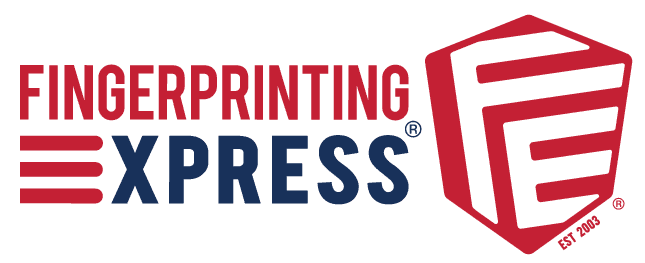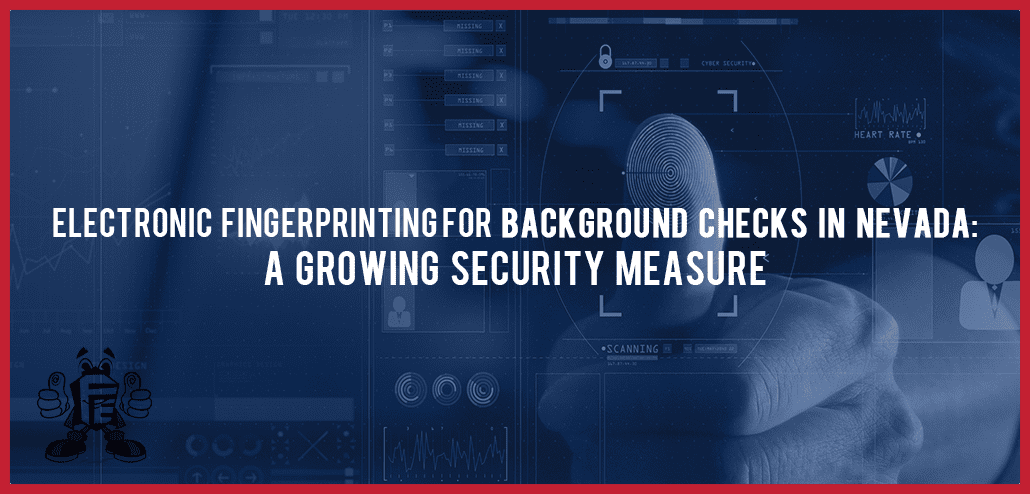A home caregiver charged with murder and grand theft in the death of an elderly Indio woman, a Nevada daycare worker abusing a child at the facility, patient abuse in hospitals, sexual abuse in the schools; the list of offenses by employees in a number of industries seems to grow by the day.
We all rely on the services of others to one extent or another. Maybe it’s childcare or education for your children, elder care for aging parents, or even healthcare, financial guidance, or other services for yourself. With the increase in violent and exploitative crimes in the news, it is clear that we need to demand higher safety and security measures in order to reduce the number of crimes committed against the public, especially our most vulnerable populations.
Many industries require employees to get fingerprint background checks in Nevada, including those working in childcare, elder care, health care, cannabis, gaming, financial services, education, real estate, and more. However, you might be surprised to learn that not all of these vocations require the most secure and accurate fingerprinting—Livescan fingerprinting. For example, the Nevada Marijuana Industry background checks are now done using fingerprints via Livescan, but social workers in Nevada, as well as lawyers getting licensed for the state bar, are only required to provide traditional ink fingerprints. Still, other employers require only name-based background checks, which can be highly inaccurate and susceptible to mistakes, deception, and omission of important criminal background history. In fact, the 79th Nevada Legislature passed in a background check bill that removed the sex offender registry access for civil name checks. This is particularly concerning since most extracurricular coaches are only running name checks and not fingerprint background checks.
Putting Safety and Security at the Forefront
With the alarming crimes being perpetrated against children, the elderly, and other vulnerable populations, as well as those we are exposed to in our everyday transactions, it is clear that our methods of screening employees and volunteers needs to evolve to reduce the number of crimes being committed against the public by re-offenders. This can include a variety of actions, both at the state and organizational levels. Some suggestions include:
Continuously screen employees: Employers should verify that an individual is who they says they are, has the credentials that they purport to have, and qualifies according to the criminal history risk profile the organization has put forth. Once the initial screening is done, the employee should be screened periodically to ensure that nothing has changed.
Monitor for substance abuse: According to the Society for Human Resource Management, monitoring for impairment and testing employees (in compliance with to state and federal law) helps to reduce the risk of violence and theft in the workplace. Since opioid abuse has reached such staggering numbers, it is a real threat to those in contact with the employee who is abusing.
Check references: If you request contact information for past employers, be sure to follow up on them to verify that the potential employee hasn’t shown any behaviors that may indicate a security or safety issue in the workplace.
Create a safe environment where employees can express their concerns: Oftentimes employers can miss some important indicators that an employee is having issues, but fellow employees can be much faster at picking up on these things. By creating an environment and clear protocol where employees feel safe to report concerns about other employees, you may be able to head off a violent or criminal act before it happens. Of course, this also requires management to take swift action to follow up with employee concerns.
Conduct background Investigations in accordance with state, federal, and local laws: A thorough background investigation is critical to ensuring that the individual you are hiring isn’t going to be a threat in the workplace or to the general public. As an employer, be sure you know what information you are permitted to gather and use based on the laws in your state. Fingerprint background checks are recommended, as they are the most accurate.
Livescan Vs. Traditional Ink-Based Fingerprinting Background Checks in Nevada: What’s the Difference?
But all background checks are similar, right? Not exactly. Name-based criminal background checks are by far the most prone to error and misinformation. Because they rely on personal identifiers like name, birthdate, weight and height, they are highly susceptible to inaccurate results based on untruthful information provided by the applicant. Additionally, crimes committed under an alternate name won’t show up in this type of background check. Since it is common for criminals to use aliases and false names/dates of birth, this is a serious problem. False hits are also an issue with name-based criminal checks, leading to inaccurate information or even information from another person being inaccurately associated with the applicant, which can take weeks or longer to correct. This can result in an unfair denial of employment and can even lead to lawsuits against the employer. The databases of these name background checks generally only provide 50-55% of actual criminal history records and this search only goes back seven years from the date the background check is run.
Traditional ink-based fingerprint criminal background checks are much more accurate since they are based on biometrics of fingerprints which belong uniquely to one person (even twins have different prints). This eliminates multiple hits or erroneous information due to an untruthful applicant or other error. Because fingerprints allow for a biometric search of criminal history databases, you can obtain a much more complete and accurate criminal history of the applicant and the criminal search goes back to age 18.
Livescan fingerprint criminal background checks take fingerprinting to another level, offering the highest accuracy available with state-of-the-art technology. With Livescan technology, errors associated with ink-based fingerprinting like rejections due to smeared or smudged results are no longer an issue and it minimizes operator error of placing the wrong fingerprints in the wrong boxes for submission. And neither is the messy black ink. Additionally, instead of waiting four months or longer to get results for ink-based fingerprinting or fingerprinting cards, the Livescan information is transferred electronically and processed directly to the FBI and state agencies, so results come back in days instead of months.
Concluding Thoughts
So how do we ensure that we, our loved ones, and our neighbors in Nevada are safely cared for by professionals in a time when there is such a growing demand for caregivers? How can we combat crimes associated with budding industries like cannabis? How can we prevent fraud and exploitation in our financial and real estate transactions? While there is no one-size-fits-all answer, it is clear that more diligence is needed when it comes to the hiring process. Better safety and security measures can go a long way towards protecting the public from violent or predatory individuals. By using some of the tactics above, including comprehensive employee screening and Livescan fingerprinting, we can make great strides in hiring the best employees.
If you are interested in learning more about Livescan electronic fingerprinting for your organization, please give us a call at 800-919-0227. We would be happy to answer any questions you have. Fingerprinting Express is dedicated to keeping the public safe by providing employers with the most accurate, efficient fingerprint background checks available.






















